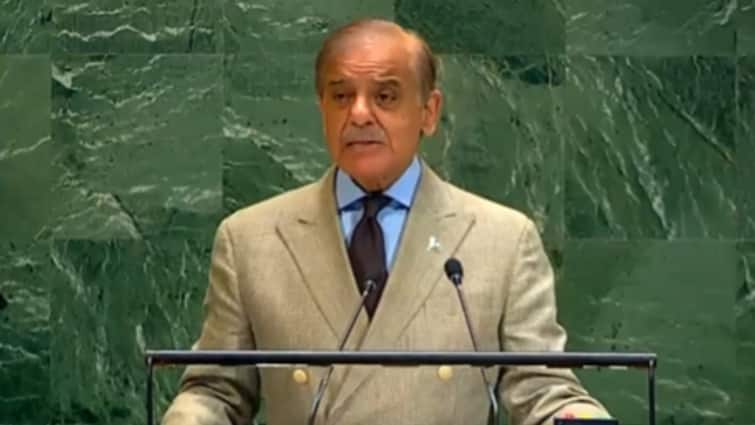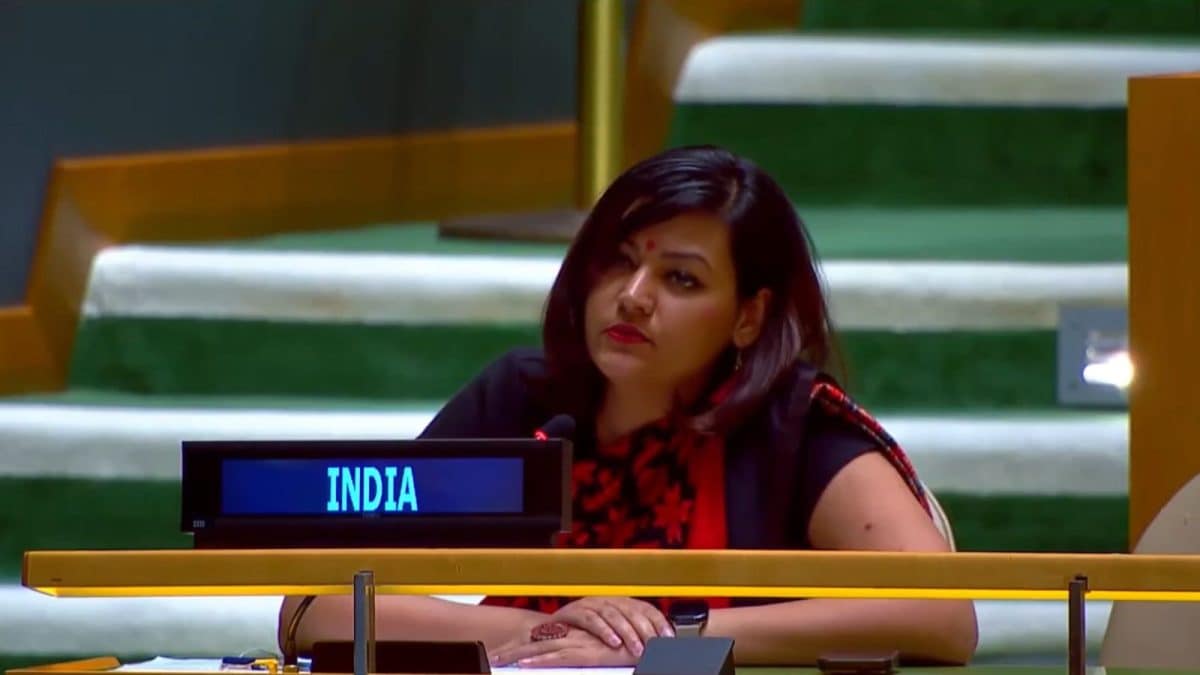Pakistan Prime Minister Shehbaz Sharif on Friday used his address at the United Nations General Assembly to raise objections over India’s move to suspend the Indus Waters Treaty, accusing New Delhi of breaching the landmark agreement, calling it an “act of war”.
Sharif, however, avoided acknowledging Islamabad’s failure to act against cross-border terrorism, a central demand from India in the wake of the Pahalgam terror attack, which claimed lives of 26 civilians and triggered New Delhi’s decision to hold the treaty in abeyance.
Sharif’s Remarks at UNGA
During his address at the UN, Sharif shared Pakistan’s position on the Indus Waters Treaty. “India’s unilateral and illegal attempt to hold the Indus Water Treaty in abeyance defies the provisions of the treaty itself as well as the norms of International law. Pakistan has made it abundantly clear that we will defend the inseparable right of our people on these waters. To us, any violation of the treaty represents an act of war,” Sharif declared.
However, his address had no mention of Pakistan’s efforts to counter cross-border terrorism despite India’s repeatedly raising the matter as a precondition for reinstating the provision of the Indus Waters Treaty.
Sharif Raises Kashmir At UNGA
The Pakistan Prime Minister also touched upon the Kashmir issue in his speech. He reiterated Pakistan’s stance on the matter and directly addressed the people of Kashmir, saying, “I wish to assure Kashmiri people that I stand with them, Pakistan stands with them, and one day soon India’s tyranny in Kashmir will come to a halt.”
India suspended its participation in the treaty earlier this year as a countermeasure against what it described as Pakistan’s continued support for terrorism across the border. The abeyance followed the April 22 Pahalgam terror attack, which New Delhi directly linked to Pakistani-based extremist groups.
New Delhi has consistently accused Islamabad of exploiting the treaty as a political tool to divert attention from its role in fostering cross-border militancy. Indian officials have described Pakistan’s arbitration attempts under the treaty as a “desperate move” to escape accountability.
Indus Waters Treaty
The Indus Waters Treaty, signed in September 1960 with World Bank mediation, governs the sharing of six rivers between the two countries. The accord gave India control over the three eastern rivers, Ravi, Beas, and Sutlej, while Pakistan was granted rights to the three western rivers, Indus, Jhelum, and Chenab.
Despite multiple wars and decades of strained relations, the treaty remained intact for over six decades. However, it has often drawn criticism within India for disproportionately limiting its share of water resources.
India now maintains that its decision to suspend the treaty is consistent with international law and depends on Pakistan taking verifiable steps to dismantle cross-border terrorism networks.


)
